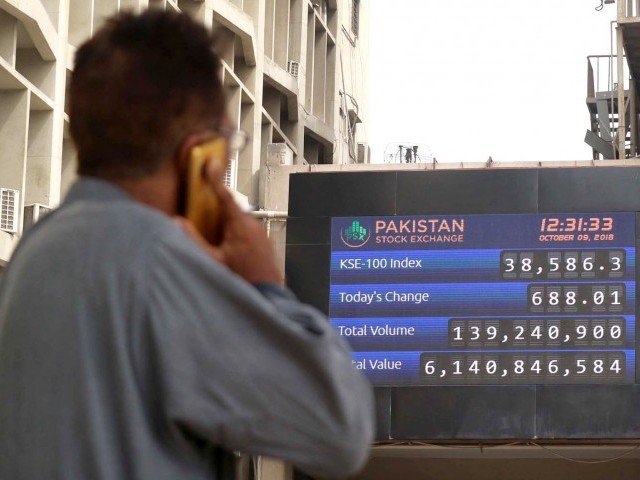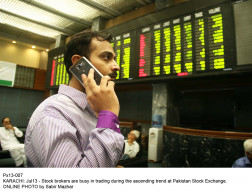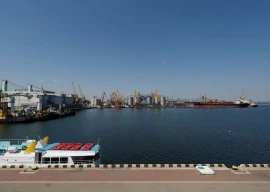
Bears dominated trading during the week amid concerns over falling foreign currency reserves, weak macroeconomic indicators, tight monetary policy and plunging commodities’ prices.
On Monday, the market got off to a negative start, plunging 1,335 points due to sudden depreciation of the rupee against the greenback and higher-than-expected increase in key interest rate. However, bulls rushed in breifly the very next day after prime minister’s assurance of devising a communications mechanism with the State Bank of Pakistan to prevent confusion in the future about rupee depreciation.
Market watch: KSE-100 dives 1,002 points as macroeconomic concerns persist
However, the bullish sentiments proved shortlived and the index again turned negative amid rumours of finance minister’s resignation. Negative sentiments were broadly driven by the lack of clarity on any financial support from China and the UAE. It is now expected that China may offer a $2-billion loan.
Weaker international oil prices and the rupee’s free fall kept the benchmark KSE-100 index under pressure.
Moreover, international oil prices remained volatile as OPEC and non-OPEC countries were meeting in Vienna between December 6 and 7. Resultantly, exploration and production stocks came under pressure during the week, chipping away 279 points from the index.
The sector recorded the second largest decline after commercial banks, which despite a 150-basis-point hike in interest rate, fell victim to negative sentiments and ate away 343 points from the index.
Market activity remained dull during the week as average daily traded value fell 18% week-on-week to $53 million. On the flip side, average daily volumes rose 7% week-on-week to 163 million shares, reflecting concentration of activity in penny stocks.
Market watch: Stocks battered as KSE-100 ends eight-day winning streak
Sector-wise negative contribution came from commercial banks (down 343 points), oil and gas exploration companies amid falling crude oil prices (279 points), fertiliser producers (264 points) and oil and gas marketing companies owing to weak sales (232 points).
On the other hand, positive contribution was led by tobacco companies (up 18 points) and miscellaneous stocks (7 points). During the week, the government allowed refineries to clear their piling furnace oil inventory through exports, but the sector still closed down 5%. Moreover, the government also decided to impose ban on furnace oil imports.
Meanwhile, in terms of individual stocks, negative contribution was led by PSO (down 125 points), Engro (105 points), Oil and Gas Development Company (100 points), Habib Bank (100 points) and Pakistan Petroleum (81 points).
On the other hand, Philip Morris Pakistan (up 19 points), Shifa International Hospitals (7 points) and Standard Chartered Bank (5 points) contributed positively to the index.
K-Electric was the most traded stock with volumes of 65.37 million shares as the government strived to solve its stake sale issue.
Foreign selling continued during the outgoing week as well which came in at $2.5 million compared to net selling of $51.1 million last week. Selling was witnessed in cement companies ($1.9 million) and exploration and production stocks ($1.8 million). On the domestic front, mutual funds remained the biggest net sellers, disposing of $3.1 million worth of holdings likely due to redemption and shift in investments from equity to fixed income funds amidst higher fixed income yields. Major buying was reported by insurance companies ($18.9 million) and individuals ($12.1 million).
Among major highlights of the week were Atlas Honda again jacking up bike prices, petrol and diesel prices declining by Rs2 per litre, Pakistan Petroleum announcing two gas discoveries, government allowing furnace oil exports, waiving conditions for sugar export, foreign debt increasing by 12% in 1QFY19 to $96.7 billion, budget deficit continuing to widen and the IDB committing $1 billion in financing to the Tapi pipeline project.
Published in The Express Tribune, December 9th, 2018.
Like Business on Facebook, follow @TribuneBiz on Twitter to stay informed and join in the conversation.

















COMMENTS
Comments are moderated and generally will be posted if they are on-topic and not abusive.
For more information, please see our Comments FAQ